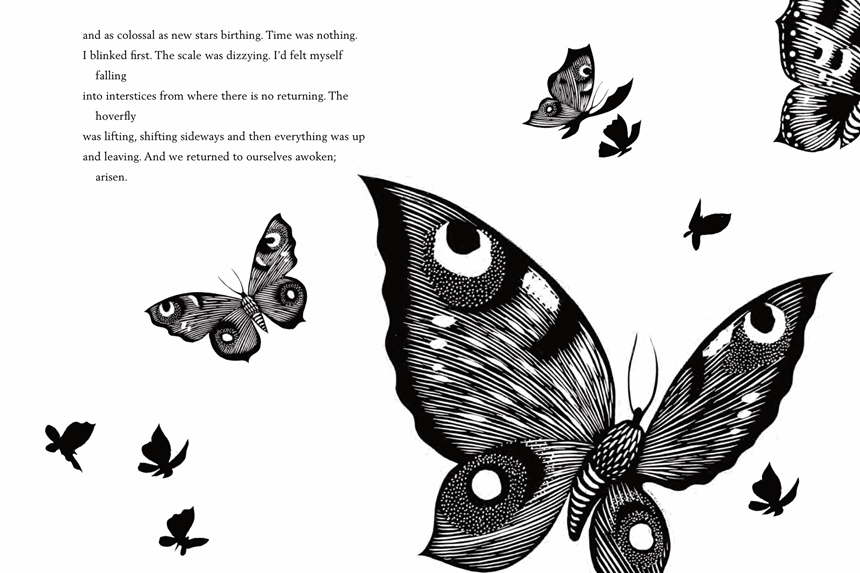Rob Cowen's book of poetry, The Heeding, produced in collaboration with illustrator Nick Hayes, charts the changes - and the lessons, if we are willing to listen - in our relationship with the natural world during lockdown.
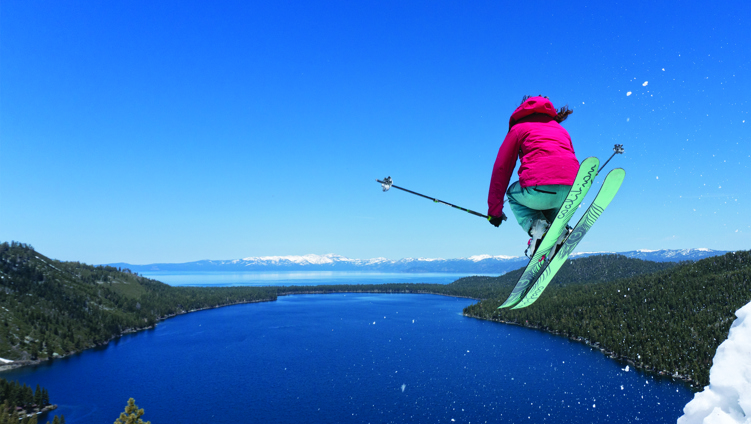
Rob Cowen's book of poetry, The Heeding, produced in collaboration with illustrator Nick Hayes, charts the changes - and the lessons, if we are willing to listen - in our relationship with the natural world during lockdown.
In your final poem you note: “Everything heeds this duel. Stupefied, the wood is trembling.” For you personally, what has been the effect of heeding and noticing more during the pandemic? Has it left you trembling?
In many ways, yes. Duel and Duel Part II are poems that explore that sudden, sharp clarity and dawning awareness we all experienced during the pandemic. That reveal of the true beauty and brutality of nature. That duality. We had the most incredible spring and summer erupting outside our windows; at the same time ‘nature’ was ravaging communities and tearing through our families and loved ones. In Duel, there is the grip of the talon, the arrival and inevitability of death; then, in Duel Part II, the grip again but, this time, the release. The escape. I wanted to capture that indifference and element of chance in it all and those two hawk moments – death / release – seemed metaphors for the virus and this time in general; a signifier of complex relationships with this ‘wild’ nature. Which is why they are the opening and closing acts for the book. Look closely at nature and you see the beauty and brutality everywhere. This is something we need to come to terms with but it can leave you trembling. Yet nature is vulnerable too; we’re discovering that more and more each day. We are living through a time of unfathomable man-made mass extinction and climate catastrophe. In heeding and noticing there’s hope we might see what we stand to lose. In that way it’s a powerful act of reclamation. It needs to extend to people too. We’ve seen remarkable acts of kindness, love and sacrifice during this pandemic. That gives me hope that we can relearn to live in symbiosis with nature and each other; hope that it’s not too late to remember that we affect this world and it affects us.
A hawk, illustrated by Nick Hayes in The Heeding
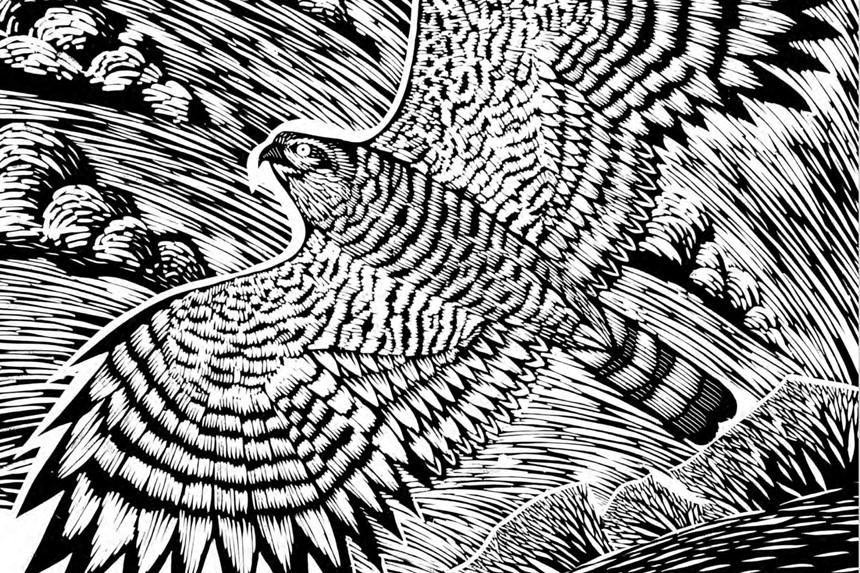
Do you have any particular rituals or techniques or routines or places that help you notice and heed more? Or is it simply a case of being mindful during life’s daily matters?
I think it’s about forcing yourself to be outside. For me, anyway. It’s about pushing away from the desk and all devices for a while and finding a horizon line. It’s about slowing down and getting out once a day. What I try to do is not just get through a place, but find ways to be in it. To sit, pause and take in. Doesn’t matter if that’s in a wood on a flank of moor or watching a line of ants on a step in a backyard. It’s the act of noticing something outside ourselves that counts.
Do you detect more noticing and heeding of the natural world now, compared with before the pandemic? Are there any places in particular you see this?
I know that the pandemic forced most of us to rediscover our closest spaces. I know this from the amount of people who reached out to me saying they’d been reading / re-reading my book Common Ground, which is all about a patch of edgeland on the outskirts of town. Most admitted they hadn’t spent any time in those frayed, fringing spaces until lockdown but that they’d come to value them like nowhere else. And there is something rewarding about visiting and returning to the same place. We learned that too. It can be profound to experience a place as it changes through weathers and seasons.
The Ivy, by Rob Cowen
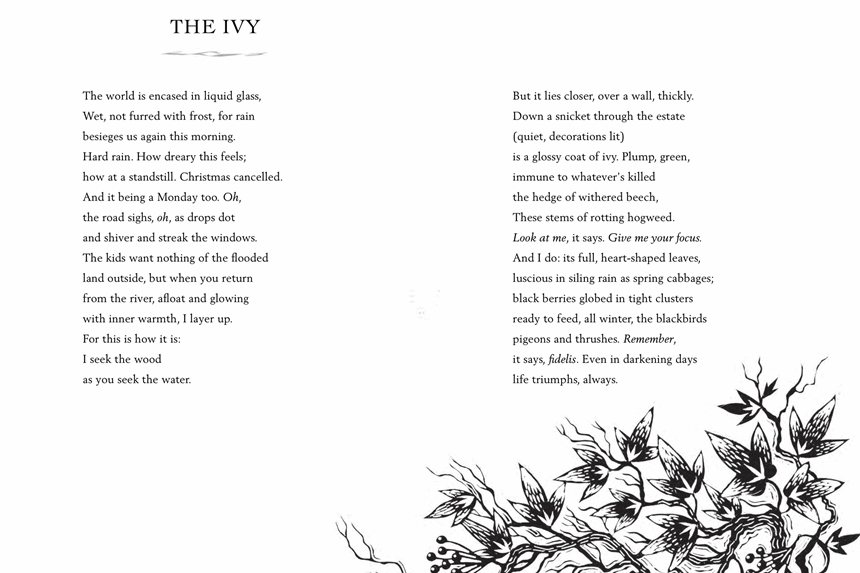
COP is supposed to be our headline global commitment to heeding. What is your feeling about COP 26 in this regard, as the dust settles?
Mixed, I think, at best. I’m relieved we have kept the chance alive of hitting the proposed and essential targets for human survival, but the blindness of global governments to both the scale and seriousness of the problem is disheartening. I was hugely encouraged by the voices of the young though. And the energy they display to find a better way to exist. That is what is truly absent from the power-meetings and negotiations. And that is the irredeemable issue at the heart of it all – the mindset that this is a deal to be struck with each other. It’s not; it’s an imperative issued by a dying world. We need to change.
Do you have any other upcoming projects around heeding and/or the natural world?
Well, I’m still going around talking about The Heeding. The paperback comes out in March, so there’ll be another round of readings and talks then, but I love those meetings and live readings. Especially after what we’ve been through and all that enforced distance between each other. The events have felt cathartic for everyone. There have been a lot of tears.
The cover of The Heeding, illustrated by Nick Hayes
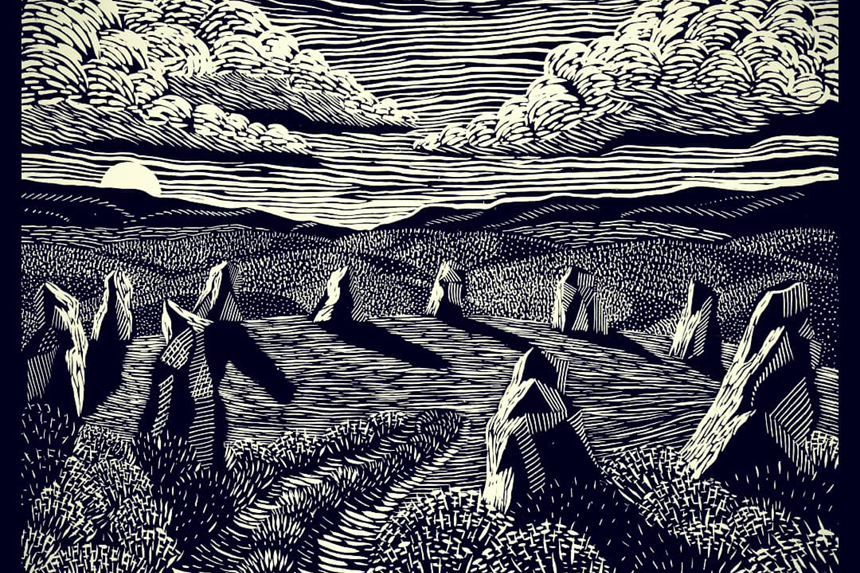
The theme of this Edition is Slowing Down. Of course, The Heeding as a whole speaks to this theme, but are there any poems in the book that you think particularly capture the value of slowing down?
Definitely. The Pact is all about that. So too The Ivy and The Heeding itself, of course: ‘An act of concentrating / that ushered a new realm of foreshortenings and openings / where the pollen dust and blurry dots of insect wings, glittering / silver around us were at once as miniscule as particles / and as colossal as new stars birthing. Time was nothing.’
The Heeding, by Rob Cowen
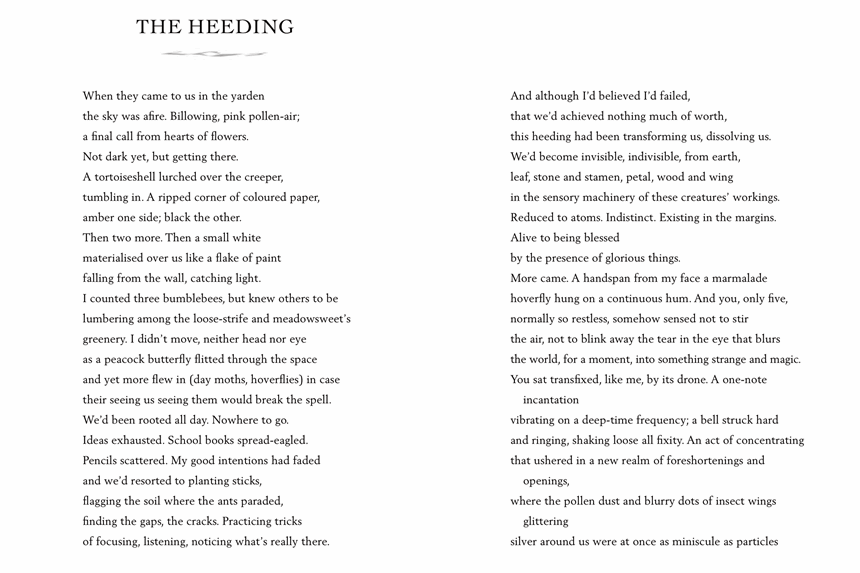
The Heeding, by Rob Cowen
